Ever since Halle Bailey, a black actor, has been cast as the originally white Ariel in the 2023 live-action remake of Disney’s The Little Mermaid, the film has been at the forefront of controversy and heated debate. The topics ranged from race-swapping characters for the sake of diversity to “giving depth” and agency to previously “passive” female characters.
The controversy was not abated by either Bailey or the film’s director, Rob Marshall, both of whom made statements about how they were “updating” and “improving” on the source material.
You might be shocked to read this, but I was actually not bothered at all when the casting of Halle Bailey as Ariel was first announced. I genuinely thought she had been cast for merit alone and not for some sort of diversity hire scheme. But as more announcements of the film came out (and as I gradually became more aware of the current culture wars), it became painfully obvious that the film was relying on identity politics as its selling point. I eventually became jaded and cynical, though I could say the same thing about my thoughts on modern Disney.
For instance, Bailey claimed that in the 2023 remake, Ariel is not “defined” by going after a man “she just met”:
“I’m really excited for my version of the film because we’ve definitely changed that perspective of just her wanting to leave the ocean for a boy. It’s way bigger than that. It’s about herself, her purpose, her freedom, her life and what she wants. As women we are amazing, we are independent, we are modern, we are everything and above. And I’m glad that Disney is updating some of those themes.”1
In another interview, Bailey declared that her being cast as Ariel is some landmark on Black representation and acceptance:
“The version of Ariel in my head was the one we all know and love: pale skin and bright red hair. She didn’t look like me. (…) I don’t really let (the backlash) affect me. I mean, I grew up in Georgia. I’m from the Deep South. Being a Black woman, in general, you just know the way things are and how people sometimes are just blatantly racist. (…) When I hear my grandparents’ stories (about their life experiences), I feel like I’m the luckiest girl in the world. All of that hate I got is nothing compared to what my ancestors lived in their lifetime.”2
The director (who, based on the interviews he gave, seems to actively hate the source material, or at least was told to give off that impression by Disney) claimed that there was no agenda in the casting of Bailey as Ariel:
“After an extensive search, it was abundantly clear that Halle possesses that rare combination of spirit, heart, youth, innocence, and substance — plus a glorious singing voice — all intrinsic qualities necessary to play this iconic role.”3
Marshall elaborated on this statement in an interview for Vogue France:
“(Bailey) was the very first actress we saw for the role. She came in and she sang ‘Part of Your World’. And by the end of it I was crying. I couldn’t believe the depth and the truth and the simplicity and passion she brought to the song. It was just so moving. (…) I mean, Halle’s so beautiful, but she also has an otherworldly sensibility. This was so important for a character that’s a mermaid and a teenage girl, who has to have this combination of strength, passion and courage, as well as a kind of naivety and innocence. (…) (E)very time she came (on set), when she read, she got more confidence. She understood nuance, she understood truth and she showed all of those wonderful colours that Ariel needs. We started to see other people (for the audition); (m)any other people, hundreds of other people, but the bar had already been set. And no one ever surpassed that bar.”4
It’s kinda hard to see that in the final product. Sure, Bailey is a convincing Ariel, but her overall performance is average at best. Though to be fair, the direction is most likely at fault here: every other actor is equally average or does a poor impersonation of the original character. (I know it’s perhaps just his accent, but Javier Bardem in particular was lacklustre as King Triton; am I the only one who got creepy pedo uncle vibes whenever he spoke?)
Easily the best of the actors was Jessica Alexander as Vanessa, who not only embodied the character perfectly but was also the only one who actually acted (or overacted, depending on how you view it), and not just did the bare minimum.
Most egregiously, Bailey’s singing sounds like it was recoded on one take; there are weird vocal inflections amidst some decent singing: “Wandering FREEEEEE, wish I could BEEEE.” As YMS put it: “She sounds like she’s vomiting. Like she got punched in the (…) stomach.”5 Though to be fair, at least she could actually sing, unlike Emma Watson as Belle.
Even more egregiously, despite both Bailey and the director claiming that they were “reinventing” The Little Mermaid for a “modern audience,” the film, as I stated in my most viral Twitter thread as of writing (more on that below), “has the exact same problem as the 2017 Beauty and the Beast remake: it's exactly the same film as the 1989 one beat by beat, with a lot of pointless changes and additions to justify the 2 hour and 15 (minute) runtime.”6
And just like Beauty and the Beast 2017, many of the new additions were either unnecessary or baffling in their existence. Why did Ursula make Ariel forget about their agreement, especially since it doesn't change the course of the film whatsoever? Why did they put such an emphasis on the sisters in the marketing when they barely appear in the movie? Why does “The Scuttlebutt” exist at all? For the rage bait?
It might surprise you to know that, in my opinion, The Little Mermaid 2023 is one of the more tolerable of the Disney remakes. Though it pales in comparison to the original in every single aspect, it wasn’t a painful experience either. In fact, it was a somewhat tolerable watch. Because it being essentially a rehash of the original film, it doesn’t preach or hyper focus on socio-political topics like some of the other recent Disney outputs do, such as Moon Girl and Devil Dinosaur, The Proud Family: Prouder and Louder, Zombies 3 or Elemental.
But it was also a tedious watch because, like I said, you’re essentially watching the same movie, but in live action and uncanny CGI, and with a lot of pointless tweaks and additions. There are three new songs to the film, all of whom are forgettable and simply don’t match up with the score from the original at all.
Because Bailey, Marshall and Disney have treated this remake like it’s some social movement (and because current year), people’s opinions on the film are directly influenced by their personal politics, not their honest judgement. Those who self-proclaim themselves as being on “the right side of history” say that the film is “surprisingly better than expected,” while conservatives and anti-SWJs say that the film is “woke trash.” It was actually very hard to find reviews of the film that weren’t clearly influenced by the creator’s politics (the only actual reviews of the film I could find were those by YMS and Doug Walker; make of that as you will).
And what kind of praise do these “fans” have for this film? Very shallow and blink-and-you’ll-miss-it moments like “the film’s setting has been changed so that it has a more racially-diverse cast” (it was filmed in Sardinia7), “Eric is still concerned about Ariel even under Ursula’s spell” (even though, narratively speaking, this makes no sense), and the most popular: “Ariel and Eric’s relationship is slightly more developed” (it is not; if anything, it feels forced and shallow, as though it’s more focused on “fixing” the romance from the original than just being a believable one):
But that still wasn’t enough for some activists:
Suffice to say, the film is most likely going to be remembered not on its own terms but for the controversy it caused, which I strongly believe to be intentional on Disney’s part, since nowadays negative rage-bait-y publicity is still good publicity.
This is perhaps as good a time as any to briefly talk about the race-swap controversy, specifically on the subject of “seeing yourself” through fictional characters. Now, I’m certainly no authority when in comes to the representation of black people in film, so I’ll tackle instead the “do or die” argument when it comes to representing minorities in media. Even if you don’t know what I’m referring to here yet, I’m sure you’ve heard this argument before, in some form or another.
For example, Duncan Crabtree-Ireland, National Executive Director of SAG-AFTRA, recently gave a speech at a GLAAD press conference. He stated in his speech that the WGA and SAG-AFTRA strikes were detrimental to LGBT+ representation in the media and were preventing creators from “making their worldview-changing stories.” Crabtree-Ireland’s speech basically regurgitates all of the usual talking points about “seeing yourself” in media narratives:
“Though some gains have been made in recent years, storytelling that reflects the full, true spectrum of the human experience is currently under attack. The AMPTP companies are complicit in this regressive push if they continue preventing artists from getting back to work and making their worldview-changing stories. Everyone deserves to grow up seeing their identity authentically represented in film and media. The companies must come back to the negotiating table, make a fair deal, get writers and performers back to work, and help all of us use the profound power of the medium — along with empowering LGBTQ+ representation — to build a better, more welcoming future for generations to come.”8
Pay attention to these lines in particular:
“storytelling that reflects the full, true spectrum of the human experience”
“making their worldview-changing stories”
“Everyone deserves to grow up seeing their identity authentically represented in film and media.”
The implication here is that people’s self-worth is somehow based on whether or not their identities are represented in the media, and are represented in the “correct” way at that (i.e. the way the elites approve). In other words, these people imply that somehow you cannot relate to a character unless that character happens to have the exact same set of identities as you.
And I’m not kidding when I say this is how extremists think. Author Dahlia Adler, for example, basically equated identity with personality in one of her blog posts:
“The thing to keep in mind when creating (your book anthology) is that diversity is key, not just because it should be everywhere but because it makes for a far more interesting collection. No one wants to read ten versions of the same kind of perspective.”9
This meme best sums up my problems with this argument:
Despite being male, I actually preferred watching female-centered media when I was a kid, and I often relate to many fictional female characters. Likewise I resonate with non-white characters like Miles Morales from the Spiderverse films and Mulan from Disney’s Mulan (the animated film, of course). My point being, creating characters that come from marginalised groups means nothing if they’re not well-crafted first. A good character is a good character, regardless of that character’s identity. Good characters are good (and relatable) regardless of era, culture, etc. There’s a reason why the classics have remained classics: because their stories (and the characters in them) were well-written. People of all identities are far more likely to identity with a good character than one that is nothing more than the creator’s self-insert.
Because this is what it’s all about. Activists often claim they want everyone to “see themselves represented in media.” But by “everyone” they really just mean “ourselves.” There’s a reason why certain people (including myself) claim that today’s kids shows are not actually made for children; they’re really just made for the creators who have serious validation issues and feel like they need to project their personal problems onto everyone else. They are so emotionally stunted that they need to “see themselves” in a character in order to be moved by a story.
There’s a reason why you often see phrases like “I wish I could have read/watched this when I was a kid” being thrown around for YA books and YA-wannabe shows like The Owl House, Moon Girl and Devil Dinosaur and Fionna and Cake. They’re not made for kids; they’re made for terminally online Twitter and Tumblr activists who obsess over identity issues and have basically no standards beyond whether the media in question portrays a certain identity “correctly.”
This is why Bailey and the remake’s creators have made such a big deal over the race-swap and other “updates”: they’re essentially pandering to these activists who make dozens of video essays and Tumblr posts about how deeply problematic Disney is, yet they are still hanging onto their newest products and praising them no matter how mediocre they are, because they’re just mindless consumers with no standards or consistency. (Just look at the reception for Elemental as a prime example.)
And don’t get me wrong, representation is important. Representing experiences outside of the mainstream norm is important. Minorities have been misrepresented in the past, that’s an indisputable fact, and representation is good, in and of itself. But I don’t think the solution to this problem is by going to the opposite extreme. As BlackLightJack points out in the intro for his series “Inclusivity Bias”:
“Making your cast full of all different shapes and sizes of people — when it’s appropriate — can potentially make your (work) more interesting. And as for society, the fact that individuals of all identities can live their life outside of discrimination is an amazing step forward for the progress of humanity.
“However. With all good things, comes a bad as well.
“Due to the scars of the past, the concept of (diversity) is being misused — and abused — in our present by many individuals amongst marginalised communities, thinking it’s justified simply because of their marginalised status. This results in a bizarre form of hypocritical discrimination where something — or someone — appears to look inclusive on a surface level, but if you look at their work beyond its exterior it’s clear that it’s also discriminatory towards others.”10
The anti-race-swapping crowd often argues that the practice of race-swapping is a reverse form of discrimination, as it implies that black (or non-white) people cannot have their own original stories that reflect their cultures more authentically. Instead, black (or non-white) characters are being recast in traditionally white roles from already existing stories, thus receiving “slopping seconds.”
Things get complicated when bringing fairy tales into the discussion. On one hand, it is in the nature of fairy tales to constantly change form, and this includes changing their cultural setting. There are countless versions of “Cinderella” and “Snow White,” for example, that come from various different cultures. On the other hand, and this is the key point here, those cultural details are an integral aspect in those stories, European or not.
For instance, the pumpkin carriage from Charles Perrault’s “Cinderella” (the most recognised variant of the story) is a subtle cultural reference that has been forgotten to time. As explained in the episode “Fairy Tales” from the Vox series Explained: “Disney’s Cinderella got a pumpkin carriage because when Charles Perrault originally wrote that version down,” (they rightfully point out that Disney’s film is based on Perrault’s version of the story) “people were excited about pumpkins. They were the cool new crop brought over from the Americas.”11 There’s also the overall tone in Perrault’s version that reflects the ambiance of the 17th century French salons, such as the emphasis on fashion and aristocracy. (Insert “white people have no culture” joke here.) Latin American or East Asian variants of “Cinderella” are thus widely different from the famous French version partly because of their cultural setting.
My point being, you cannot just change one cultural aspect of a story and leave the rest as it is without some proper adjustments; it will only make your story’s setting muddled and confused.
Here are two small examples of what I mean. One is an adaptation of “Thumbelina” from Little Fox Readers, and while I do like it (it’s one of my favourite adaptations of the story, in fact), there was one small detail whose very existence astounded me. Here’s the context: the mole intends to get rid of the swallow whom he presumes to be dead by… hiring a coyote to come and eat him.
Let’s leave aside the obvious question of how can a mole form an allyship with a coyote without being devoured first. Assuming the story’s setting is still Denmark (and it seems like it; all of the characters look European), were the creators aware that coyotes don’t live in Denmark? And what’s funnier is that they could have easily avoided this problem if they had just replaced the coyote with a fox — a predator that actually lives in Denmark.
Another example is a crappy, barely-animated Japanese adaptation of “Jack and the Beanstalk,” where they decided to randomly change the giant (or ogre, if you go with Joseph Jacobs’ version) into an oni (a Japanese ogre)… and leave the story’s cultural setting otherwise the same. Yup, definitely not lazy cultural appropriation here.
For those asking for an example of how to do it right — how to properly change a fairy tale’s cultural setting without coming across like an incompetent, ignorant writer — look no further than the HBO series Happily Ever After: Fairy Tales for Every Child, which puts a cultural twist specifically on famous European fairy tales. But unlike Disney, they actually put in the effort and implemented those cultural changes into the narrative and did it well.
Here’s just one example: their “Snow White” adaptation takes place in Native America (the American southwest to be precise) and many of the story’s changes are rooted in Native American culture. In fact, given the titular character’s name, it makes perfect sense to set this story in Native America, as all the other characters have similar names that go with their personalities: the evil stepmother is called Sly Fox, Snow’s Father is Chief Brown Bear, and so on. Even Snow White is called White Snow in this version, to be consistent with the culture and the other characters’ names.
It also helps that the series was good and did meaningful changes to the stories, unlike the Disney remakes.
There’s also a discussion to be had about why only European fairy tales get to be adapted in mainstream media, but that’s a topic for another time.
To get back on track, this is not the first time a Danish — and explicitly stated to be white in the original story — little mermaid has been race-swapped, as I pointed out in one of my threads.12 But the little mermaid, just like any other fairy tale character, is an archetype, a template: she can be modelled in however way the storyteller wants her to be. The source material is, if you will, the starting point for new renditions.
This is also why nobody had (and has) a problem with the 1997 Cinderella film starring Brandy (a black woman) as the titular character. It was a completely different Cinderella character, rather then being a race-swapped version of, say, the 1950 Disney Cinderella character. It also wasn’t a cynical version of the story, nor did it use its racially diverse cast as its only selling point, or as a shield against criticism.
I don’t think anyone will deny that Ariel the little mermaid is a different character from the Andersen little mermaid. I also don’t think anyone will deny that Mija (the little mermaid from HBO’s Happily Ever After) is also a different character from both Disney’s and Andersen’s little mermaid. But Halle Bailey’s little mermaid is the exact same character as the original 1989 little mermaid. The issue here is that they’re explicitly race-swapping an existing version of the character, instead of creating a new little mermaid character who is not Ariel, and who just so happens to be black. In other words, the creators of the remake are actively trying to replace the original film by claiming that the remake is the “improved” and “inclusive” version.
And this is further emphasised by the fact that, shortly after the remake’s release, a Disney Junior show was announced that acts as a prequel to the remake. Surprise surprise, Ariel is also black in this one, while Flounder and Sebastian are in their original deign and not the newer ones. (Triton and Ursula are also black in the prequel show, even though they are white in the remake, so already there are some serious continuity issues with this “updated” property.)
Are you starting to see the problem here?
Yes, it’s fiction. Yes, it’s not meant to be historically accurate. But you are not advancing black rights or representation by doing these sort of lazy changes. You’re just pandering to terminally online activists with serious validation issues. It’s also telling that it’s usually non-black (white) “allies” who accuse anyone who has any problem with the race-swap (or the remake in general) of racism, while actual black people are divided on this; some adore it, others despise it. This is your daily reminder that black people (or any group of people for that matter) are not a monolith.
Patience Xina has tackled this topic far better than I could, so check out her video:
I also recommend watching Xina’s follow-up video in which she highlights the problems of white “allies” speaking on behalf of black people on topics like this one:
Personally I never cared about the race-swapping stuff in the first place, but I really hate that it’s now being used as a shield against any legitimate criticism of the film. Never mind that it’s yet another soulless Disney cash-grab that preys on people’s nostalgia; it’s racially inclusive, and “up with the times,” so that automatically makes it good, right?
I got my 15 minutes of fame as a burgeoning (and practically unknown) online creator by posting a thread in which I list every major change in the remake as seen in the novelisation for the film.13 (The novelisation was published before the film came out, by the way. Why did they do that, I wish I knew.) All I had to do was tag the right person (mjtanner) and the rest was history.
Perhaps this is normal for long-time online creators, but for someone like me it was an overwhelming but still very much appreciated stream of attention. To my knowledge, my thread got mentioned by FIVE YouTubers in their videos, so that was neat. (mjtannerț, It’sAGundam, JLongbone, Pimp Master Broda and StudioJake, for those curious)
Although I did not receive any hate comments over the thread (surprisingly enough), I got this quote tweet, which accused me of purposefully leaving out “crucial context” from the film and ignoring that the novelisation is “a very bare bones telling of the movie”:
As I said in a follow up thread: “I only revealed what was in the novelisation, I never pretended to know what would be in the movie, but rather point out what to expect from the movie.”14
And surprise surprise, I was right: the novelisation is a very accurate telling of the movie, almost disturbingly so. In other words, the film was exactly as I expected it to be, based on the novelisation. So no, I didn't miss any “crucial context,” you just got angry that someone didn't like the film and shared what was in the novelisation for others to see online, and assumed it was all due to xenophobia.
I share this in case anyone else accuses me of the same thing. I’m more than happy to clarify my points, and I always try to present a full picture of what I’m discussing in my posts. Context is crucial for me, especially in our current age of misinformation, hence why I cite my sources whenever I can. Sure, I may present that information in a biased way (I’m only human after all, one with opinions), but I personally gain nothing from being dishonest with myself and, consequently, others.
So, as a follow-up to my initial thread, I will spend the rest of this post listing or conforming the changes made to the live-action remake of The Little Mermaid as initially seen in the novelisation. I wondered how I could do that in an organised way, since these changes are small and if I were to list them randomly the post would be a disorganised mess. Then I came across a post from the blog site Of Fact and Fantasy titled “The Little Mermaid (2023) Predictions” and found the solution to my problem.
In the post, the writer lists her own predictions on what changes would be in the remake based on “all of the trailer and TV-spot footage I could find” before the film’s release. The writer states:
“I take my Little Mermaid knowledge quite seriously, so none of these predictions are jokes or throwaways. As a matter of fact, I’ve given this experiment some stakes. (If) 50 percent or more of my guesses (are) wrong, (…) I will watch and write about 3 episodes of The Little Mermaid TV show (…). And if I get more than 50 percent correct—I don’t know, I’ll buy a pint of Phish Food and bask in my victory.”15
So I’ll go over her list of predictions and comment on all of the points presented, while confirming all of the changes in the remake.
So without further ado, let’s see if her predictions were correct:
We’ll be treated to some backstory on Ariel’s dead mom. Bonus points if she actually appears in a flashback.
No there isn’t, and no she doesn't.
Much like Beauty and the Beast 2017, the remake feels the need to explicitly state that Ariel’s mother is dead and that this is a big deal — despite not affecting the story in any major way. Triton is essentially portrayed as a grieving widower, whose hatred for humans is explicitly stated to be caused by the death of his wife. But we’re never told exactly how did his wife die, only that her death was caused by a human.
In the novelisation, in the scene where Triton confronts Ursula after she takes Ariel as her prisoner, it is revealed that Ursula is responsible for the death of Ariel’s mother, thought we’re never told explicitly how.
In one of the supplemental books for the remake, Guide to Merfolk, we are given a full backstory for the death of Ariel’s mother…
… which is then contradicted by another prequel book, Against the Tide. (Again, why are there so many continuity issues with the lore of this remake?)
Thanks to @PrincessOfBlogs for providing images of the book Against the Tide.
So I was expecting something like that in the actual film… and it never happened. The conversation between Triton and Ursula at the end is nearly the exact same as in the original film, and there is no explanation on whether Ursula was responsible for the queen’s death. I was honestly kind of disappointed at this lack of revelation and consistency. (Are you starting to notice a pattern here?)
Ursula will also have some backstory (why is she banished? why does she hate Triton?), because we are past the age of baddies just being baddies for the fun of it.
Ursula and Triton are siblings in the remake, but other than that we’re not given any additional backstory for Ursula. This is because, much like Beauty and the Beast 2017, this remake sticks so close to the story structure of the original film that it does not deviate much from it, even for the sake of providing any backstory for the villain. See the previous point.
There will be some awkward attempt at commentary on how humans shouldn’t kill fish or should respect marine life. It will be isolated and not affect the rest of the story in any way.
Yup.
I already pointed this out in my original thread, but the film has a minor subplot about a mutual prejudice between humans and merfolk. Merfolk hate humans for polluting the ocean (and killing the queen), and humans hate merfolk for the frequent sea-storms that affect their kingdom.
There is also a minor subplot about how Eric’s kingdom is poor and isolated from the rest of the world. He wants to sail overseas to trade with other kingdoms, but each trip is sabotaged by a sudden storm. In fact, the voyage he embarked in at the beginning of the film (which was also struck by a storm and from which he was saved by Ariel) was so he could trade some cane from his kingdom for cases of quinine.
Queen Selina, Eric’s adoptive mother, has a prejudice against merfolk for largely the same reason Triton is prejudiced against humans. Eric was washed up on the shore as a baby after a sea storm, and his mother believes that the sea gods are against humans. She changes her tune at the end of the film, much like Triton.
There is also a scene where Ariel and her sisters are cleaning up a sea reef from the shipwreck (why are they doing this themselves; aren’t they royalty? aren’t there servants assigned to do this work?) and blame humans for the damage caused.
“Do these humans have any idea how much damage their shipwrecks do?”
“I don’t think they intended to have a shipwreck.”
“They’re careless, Ariel. It will take thousands of years for this coral to grow back.”
Disney has all the resources in the world, yet the CGI in this 2023 movie looks like it comes from the 2000’s.
But again, these little asides don’t affect the course of the movie in any meaningful way whatsoever. They are only here so Disney can pay lip-service to current socio-political issues (environmentalism and racism in this case) without fully committing to any of them. Because, again, they just want to pander to activists who hate their products anyway.
I’m going to go out on a limb and say that the shipwreck scene will be the first time Ariel has ever been to the surface. The “Scuttle explains the dinglehopper” clip is underwater, and Triton’s “you broke the rules” voiceover in the trailer indicates that Ariel going above-sea isn’t a recurring issue. Ariel and Triton might still have their beginning spat about her missing the concert or whatever; but it’ll just be because she was off looking at human stuff underwater, not because she actually went above the water.
Yes, the shipwreck scene is the first time Ariel ever goes to the surface. I personally think this ruins her character, as Ariel frequently going to the surface and thus breaking her father’s rules in the original highlights her free-spirited and rebellious nature. The fact that this is all removed in the remake only makes her character blander and, dare I even say, less relatable.
(Let’s be honest, we’ve all done rebellious acts when we were teenagers. That’s one of the things I love most about the original Ariel; she is a good representation of a teenager, in my opinion. In fact, I’d even go as far as to say that some people hate her because they expect her to be an idyllic, flawless character, rather than the imperfect, but far more interesting, character that she is.)
Yes, the Scuttle explaining the dinglehopper scene takes place underwater. (I know Scuttle is a gannet in the remake, but surely she can’t hold her breath underwater for that long, or at least as long as that scene lasts.)
Yes, Ariel and Triton still have their argument over her missing not the concert but some royal meeting… that is only between the king and the princesses… so it was not as big of a deal that Ariel didn't make it because nobody else attended it, so Triton did not get humiliated in front of his subjects. See, this is why you don’t make changes for the sake of making changes — you risk reducing the impact of the original scene. And no, I don’t care that they did this so “Daughters of Triton” will be cut and “Part of Your World” will be the first song in the film; this is still a bad decision because it lessens the impact of the original film.
(Also, I highly suspect “Daughters of Triton” was cut not because they wanted to make “Part of Your World” a showstopper, but because they didn't want a song that praises “the monarchy” in a film for “modern audiences.” And in case you believe I’m exaggerating, watch Lindsay Ellis’ video Woke Disney in which she complains that Disney is promoting an “elitist” message. Since Disney is only listening to online activists these days, it’s not a stretch to believe that they’d take note of this particular opinion that only Marxist academics and their proteges really have.)
However, building off of that last point, I don’t think there will be any concert in the opening of the film. We know “Daughters of Triton” was cut, so maybe that’s a given; but I don’t think there will be anything about training the mermaids to sing, Ariel being at rehearsals, et cetera. This will be a more grounded and noble mermaid monarchy that doesn’t waste time on such frivolity. If anything, Ariel will miss an important meeting about underwater diplomacy or a treaty between the different sea kingdoms.
Hell to the yes. See the previous point.
I should also point out that both in Guide to Merfolk and Against the Tide, the princesses are each assigned to rule over one of the seven seas, each with its own kingdom, culture and customs (perhaps this is a reference to the original story, in which each sister had her own garden near the castle?). This detail, of course, is never mentioned in the film, because we can’t deviate too much from the original film’s storyline, now can we?
No Prince Eric statue in this version. If Triton destroys Ariel’s collection, the pivotal item will be something else.
There is a statue of Prince Eric in the remake, but for some reason it is not presented as a birthday gift to him. Instead it first appears when it is thrown overboard during the storm.
This once again ruins the subtle details from the original film and takes away from Eric’s character. When he is given the statue in the original film — a statue that presents him in a regal, overly dignified fashion — Eric looks embarrassed, a gesture that suggests to his humble nature and his preference for a more exiting life at sea over a monotone one at the castle.
Why was this change made in the remake, when it only ruins Eric’s character?
Well, because—
Eric believes in mermaids/some kind of world under the sea, and part of the reason why he sails is in hopes to uncover more about it. He wants to explore the underwater world like Ariel wants to explore the surface.
Mostly right.
Apart from Eric’s desire to reach to other kingdoms, this prediction is correct. The remake essentially copypastes Ariel’s story, personality and desires onto Eric and called that an improvement on Eric’s character. It is not. That’s the easiest (and laziest) route you can take.
Eric has his own room of various trinkets and artefacts, you see, all gathered from his many travels at sea. He even gives Ariel a jade mermaid, whom he calls his “little mermaid.” Predictably ironic, I know. Then they bond over their shared interest in travelling and sealife by spending the whole day looking over maps of various lands and kingdoms.
In the remake’s attempt at making Ariel and Eric’s relationship more “believable,” they go through the route of “shared interests = soulmates,” which, contrary to popular belief, is not the foundation of a healthy relationship. Rather, it is how the two people in the relationship complement each other.
Look, I’m not against developing on the romance between Ariel and Eric (this is actually one of the few things I think the Broadway show improved from the original), but I was just left cold by the romance in the remake. It all just felt artificial to me, it didn’t feel genuine at all. I felt as though it was all based on what some chart said, and not on the writers’ desire to truly develop on their relationship. So it all felt like it was just going though the motions — much like all the other live-action remakes.
Ursula will make at least 3 bad puns/quips in the “Poor Unfortunate Souls”/deal scene that won’t land at all.
I think Doug Walker put it best:
“Melissa McCharty (is) acting like she’s drunk the whole time. Like she’s just desperate trying to find some way of making this material funny or just saying all these lines you’ve heard a million times.”16
Overall she’s just passable, much like the rest of the cast.
There will be some forced commentary on how true love can’t actually happen in three days, because it’s a post-Frozen world.
Never happens. As I said multiple times throughout this post, the remake never really deviates from the original film’s storyline besides some minor inconsequential changes. The film is as by-the-numbers in terms of its romance as it gets. Not necessarily a problem in classic, good-versus-evil type fairy tale films, but this remake is acting like its romance is far more interesting and nuanced than it really is.
Chef Louis will be in this movie. Disney has been coy about it and by all narrative means, they should cut him out, but they won’t: They wouldn’t deviate that much from the animated template. “Les Poissons” will be there too, even if he’s just humming it under his breath.
Chef Louis is not in the remake. Nor is “Les Poissons.” We have instead three new songs, all of them forgettable, and one of them is “The Scuttlebutt.”
Make of that as you will.
Ariel and Eric will connect over their dead parents or overly controlling guardians (Triton/Grimsby).
As I said above, Ariel and Eric connect over their shared interest of life at sea, rather than their dead parents (in fact Eric’s adoptive father is never mentioned in the film). Because Eric’s story is a copy-paste of Ariel’s, Queen Selina is as overprotective of Eric as King Triton is overprotective of Ariel (though she never destroys Eric’s sea collection). But there’s no scene in which Ariel and Eric talk about their overly controlling parents.
If anything, Grimsby is kind of a free-range guardian to Eric. Queen Selina forbids Eric to leave the palace, so Grimsby helps him sneak out so he could give Ariel a tour of his kingdom and covers up for him.
Grimsby’s kinda charming in this film, I’m not gonna lie. 2023 Grimsby is the only other good performance in the film besides 2023 Vanessa.
The snarfblatt will be excluded, or at the very least, Grimsby won’t be smoking one, because the current Disney model won’t want any smoking in their movie.
Yup, pretty much. Nothing more to add to that.
Ariel will have an ally among Eric’s castle staff—a Carlotta-type character who helps her with some human-world idiosyncrasy or comforts her when she hears about Eric and Vanessa.
There is no Carlotta in the remake either. She’s replaced by Lashana, the castle's head of household, who takes Ariel into the castle and cleans her up. The only thing of note that she does is calling for Eric to come and see Ariel as soon as she suspects that Ariel is the girl he’s been searching for. Both change their minds once they realise Ariel can’t speak. Other than that, she doesn't do anything else for the rest of the film. Not even help Ariel learn more about the human world. In fact you could easily take Lashana out of the film and it wouldn’t change a thing, that pointless of a character she is.
Eric decides to be with Ariel and give up searching for the mysterious voice without any nudging from Grimsby.
I should give a little bit of context for this point. The author of the list dislikes the original Little Mermaid basically because Ariel and Eric aren’t the perfect, idyllic, self-insert-y characters she wants them to be.17 She thinks that because Grimsby suggests to Eric that he shouldn't chase a dream girl and instead appreciate the real thing in front of him (Ariel), Eric technically doesn’t have a character development, because he doesn't come to this conclusion entirely on his own. Never mind that some people do need a little nudge from someone else to realise the error of their ways; that’s why psychologists and school councillors exist in the first place.
Anyway, technically speaking, Grimsby still advices Eric to stop chasing the dream girl in the remake. And because there’s more emphasis on Eric searching for his rescuer in the remake, this scene is therefore more pronounced. The only difference here is that after Grimsby covers up for Eric’s disappearance (Queen Selina was searching for him just when Eric and Ariel were returning from the lagoon), he tells his bit of advice to Eric after Ariel retreats to her room. Then Eric leaves the castle and goes to the beach to think it all over… which is where he hears Ariel's voice and meets Vanessa. Speaking of…
Vanessa will wear some stereotypically promiscuous/“bad girl” apparel.
I’ll let this scene speak for itself:
Why is she humming the lyrics instead of singing them? Because—
“Scuttle will ruin the tone of a scene by ad-libbing/riffing the hell out of it” feels like a given, so I’ll specifically say that in the scene where Ariel learns about Vanessa, all of her despair will be undercut by Scuttle antics.
“The Scuttlebutt.”
I rest my case.
When it’s time to crash the wedding/catch up to Ursula/Vanessa, Ariel won’t just be tugged by Flounder to the ship. 2023 Ariel is going to be more proactive. Maybe she’ll be able to swim in her human form or row her own little dinghy out to the ship.
The engagement party (and yes, engagement, not wedding, because we gotta have realistic relationships in modern Disney) takes place in an outdoor balcony instead of a ship, so Ariel doesn't have to swim to the event to confront Vanessa; she goes there directly. Scuttle and Sebastian also fly over to the party, but of course they’re basically useless in this scene. But the bit about Ariel being more proactive is accurate; she’s the one who singlehandedly rips off the seashell necklace from Vanessa via catfight.
Ariel will be the one to defeat Ursula. This is the era of Disney girlbossification, and Eric slaying the villain will no longer stand.
Yup. And I complained about it in my original thread.
Someone commented on my thread that, according to the book DisneyWar, Ariel was originally supposed to be the one to defeat Ursula and not Eric, but Katzenberg changed the ending. While I do like me some strong female characters, I think it was the right move to have Eric defeat Ursula for 2 reasons:
Triton has had a prejudice against humans. Eric, the human, defeating Ursula, Triton’s mortal enemy, proves to Triton that not all humans are evil or dangerous. If Ariel had been the one to defeat Ursula, there wouldn't have been any reason for Triton to have a change of heart, and there would be no satisfying resolution.
Ariel has a fishtail in that scene. Logically speaking, she cannot stand and steer the ship on her own.
“But Ariel was strong enough to rescue Eric from the storm!”
Yes, but that was within the capabilities of what her mermaid body could do. Steering a ship is something only a human with functioning feet can do, not a mermaid with a flexible fishtail. That’s like saying that because a bird is strong enough to fly, the bird is also capable of swimming in a body of water in the same way a human does, when we all know that’s impossible.
Also, how did Ariel know how to steer a ship? That’s not something you get to learn on a whim. But let’s be honest here, they only pulled this off so they can have their Strong Female Character™, regardless of how little sense it makes in this case.
Honestly, this is another aspect I think the Broadway show handled much better: it made Ariel defeat Ursula and save the day without going through giant hoops of logic. Not every man can wield a sword without training, and neither can every woman.
Ariel and Triton will actually have a reconciliation conversation before she embraces Eric at the end.
Again, the writer is projecting her dislike for the original film. Though to be fair, I do prefer the alternate ending in which Ariel embraces her father and tearfully apologises; I do like the ending that we got, but there’s always room for improvement, and this one isn’t too bad all things considered:
As for the remake, the reconciliation between Ariel and Triton plays out pretty much the same as in the original film. The only difference is that it takes place days after Ursula is defeated, and not immediately after.
Ariel and Eric won’t get married, or there will be an ambiguous celebration scene like the ending of the 2017 Beauty and the Beast that could be read as a wedding (to please the viewers who want a wedding), but isn’t explicitly confirmed as such (to please the viewers who don’t want a wedding).
Yyyyyuuup! Ariel and Eric set out on a sea voyage at the end of the film. But because both humans and merfolk attend their departure like there’s some grand celebration taking place, some viewers might be forgiven for mistaking it for a wedding celebration.
One person commented on my thread asking whether Ariel and Eric don’t get married at the end or they do but it’s never mentioned in detail. I responded: “It's more (the) "true love but they don't marry right away" thing that (we’ve) seen in modern Disney.”
And there you have it. Out of the twenty predictions listed above, the writer got about 11 of them right, so congrats for that! (The question now remains which flavour will she choose.)
Update 25.12.2023: Apparently, the writer has come to a (slightly) different conclusion to mine, so we’ll see her tackle three episodes of The Little Mermaid series in the near future.18 Can’t say I’m disappointed by this prospect.
Update 9.08.2024: Kiana (the writer of the aforementioned article) has since done a 180 on her thoughts on the film and now loves it.19 She has also released her piece on the first three episodes of The Little Mermaid series from the 1990’s.20 In said piece, she makes an “interesting” comment on the 2023 remake. For context, she is talking about the third episode of the series, “Stormy”. I’ll let her comment speak for itself (as far as I could tell from her other writings, she’s white, or at least not black):
For those curious to learn more, there are slightly more details about what they changed in the remake in my aforementioned thread, which you can find both in the notes section below or as one of the threads listed in my big introductory thread pinned to my Twitter account. Suffice to say, the remake was exactly as it promised, and for that I can’t say I’m too disappointed. But, like I said multiple times in this post, this is yet another lifeless live-action Disney remake that preys on nostalgia and pales in comparison to the original film. The only thing that separates it from the others is that it also used identity politics as a shield against justified criticism.
And to the people who accuse me of being a Halle Bailey hater: I have nothing against her. In fact, I feel sorry for her; she got thrown into the culture war because of Disney and this film and the controversy surrounding it will most likely affect her career in the future. Or at the very least it will give her a very rocky start to her career.
At the same time, though, I can’t feel too sorry for Bailey. Not only did she still agree to take on the role, not only did she ignite the fire by making the comments she made in regards to the original film, but, despite acting as though her playing Ariel was some kind of social movement — to the point where she compared the backlash she got to the racism her grandparents had experienced — she is very willing to leave all of that aside, to stop acting like it was a big deal in the first place, if it’s convenient for her. In an interview with Cosmopolitan, Bailey was asked if she was worried about being boxed into the Disney Princess image. Bailey said:
“My main goal has always been to stay true to myself. There’s so much more to being a young woman than this fairy-tale character. I think other people have a hard time separating who Halle is and who a princess is—and that’s natural when you’re a fan of an artist. But it’s a beautiful thing to be a layered individual and not fit into one certain image.”21
That’s right! “Me playing a race-swapped version of a previously white princess will give little black girls confidence somehow. But also, being a princess is limiting, and fairy tales are silly, so I ain’t gonna be one after all. But my sheep fans will follow my every word and move regardless, so I’ll take full advantage of that.”
Also, who says you can’t be a princess and a layered individual at the same time? That was the whole point of the Disney Princesses in the first place!
I’ll end this rambling mess of a post by talking about a specific scene from the film. While Eric and Ariel are touring his kingdom, Ariel stops by a village marketplace and looks around at the different stalls. At one point a woman hands out a bowl to her and Ariel happily takes it. As Ariel turns to leave, the woman calls after her: “Uh, wait — I think you’ll be needing this.” And she hands her a fork, or, as Ariel would call it, a dinglehopper.
That woman is none other than Jodi Benson, the original voice actor for Ariel. Yup, they went down that route. Because of course they did.
Stans of the film naturally took to Twitter and Tumblr to gush about this scene, claiming that Benson handing the fork to Bailey represents the “old” Ariel “passing the torch” to the “new” Ariel.
But if these stans had actually watched the scene in full, they’d realise (and naturally deny) that they had made complete fools of themselves.
Bailey twirls one of her locks around the fork, only to notice two men behind her staring at her in confused awe. It’s almost as if the film subtly acknowledges that twirling a dreadlock around a fork is highly impractical, and a laughable consequence of thoughtlessly race-swapping her character. Bailey seems to realise this, as she quickly puts down the fork in embarrassment and goes away.
Almost as if this “new” Ariel has just realised she’s just a cheap imitation of a better character, and so she’s giving “the torch” back to the real Ariel.
Not sorry.
Note: All screencaps used from The Little Mermaid (1989) and The Little Mermaid (2023) were taken from animationscreencaps.com.
“Halle Bailey Says ‘The Little Mermaid’ Will See Ariel Leave the Ocean for More Than a Boy” by Abbey White (link) via hollywoodreporter.com
“Halle Bailey on reinventing the Disney princess in The Little Mermaid” by Jen Wang (link) via vogue.fr
“Disney’s Live-Action ‘Little Mermaid’ Casts Halle Bailey as Ariel” by Justin Kroll (link) via variety.com
“Halle Bailey on reinventing the Disney princess in The Little Mermaid” by Jen Wang (link) via vogue.fr
https://x.com/cynic_media/status/1654588585704579073?s=20
“Studios’ Shutdown of the Entertainment Industry Puts Diverse Representations at Risk” (link) via sagaftra.org
“Fairy Tales” from Explained, season 3, episode 14 (creators Ezra Klein and Joe Posner)
https://x.com/cynic_media/status/1615761431495835678?s=20
https://x.com/cynic_media/status/1654588570181443586?s=20
https://x.com/cynic_media/status/1662165124889575445?s=20





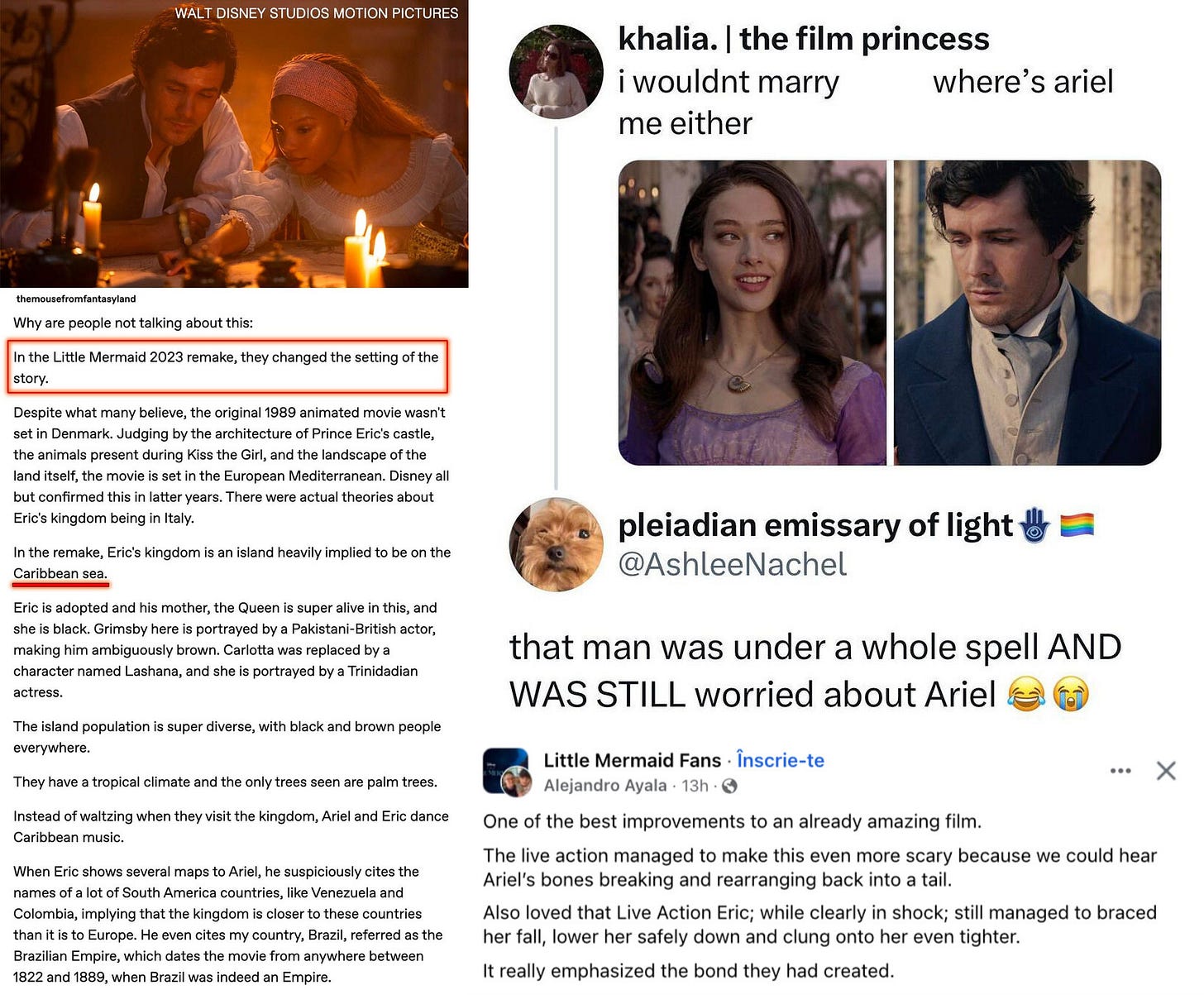
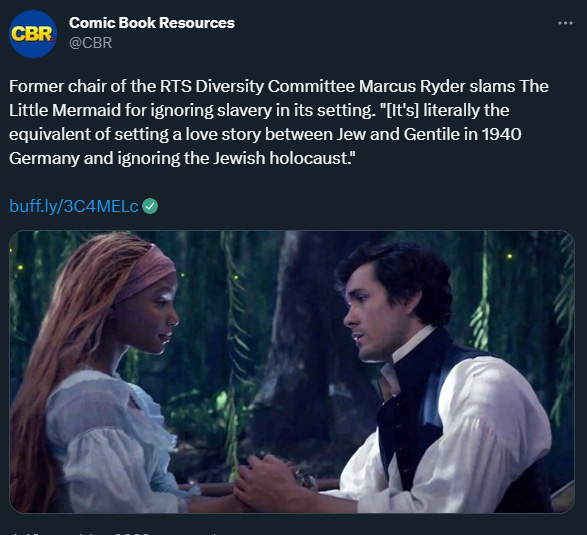






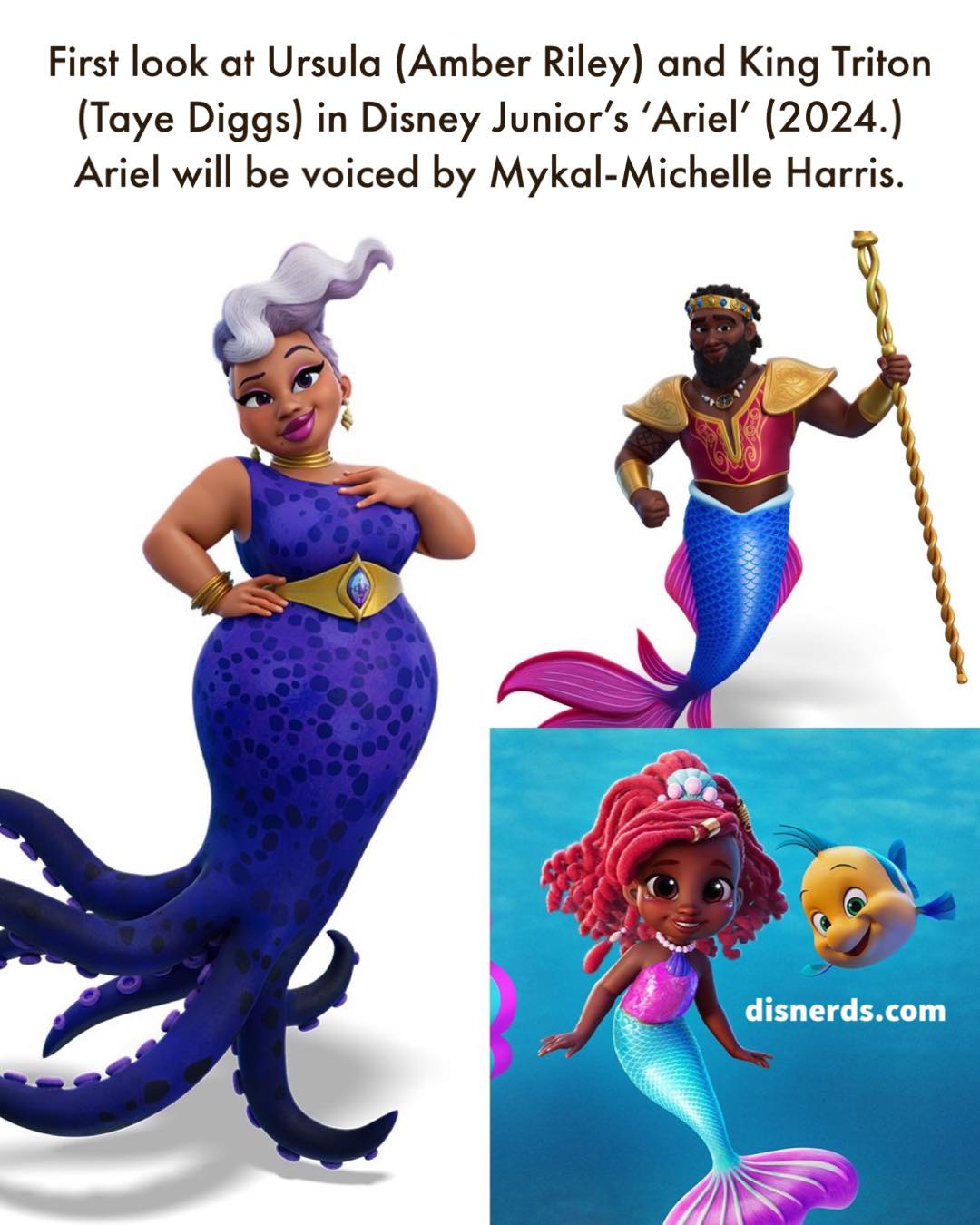









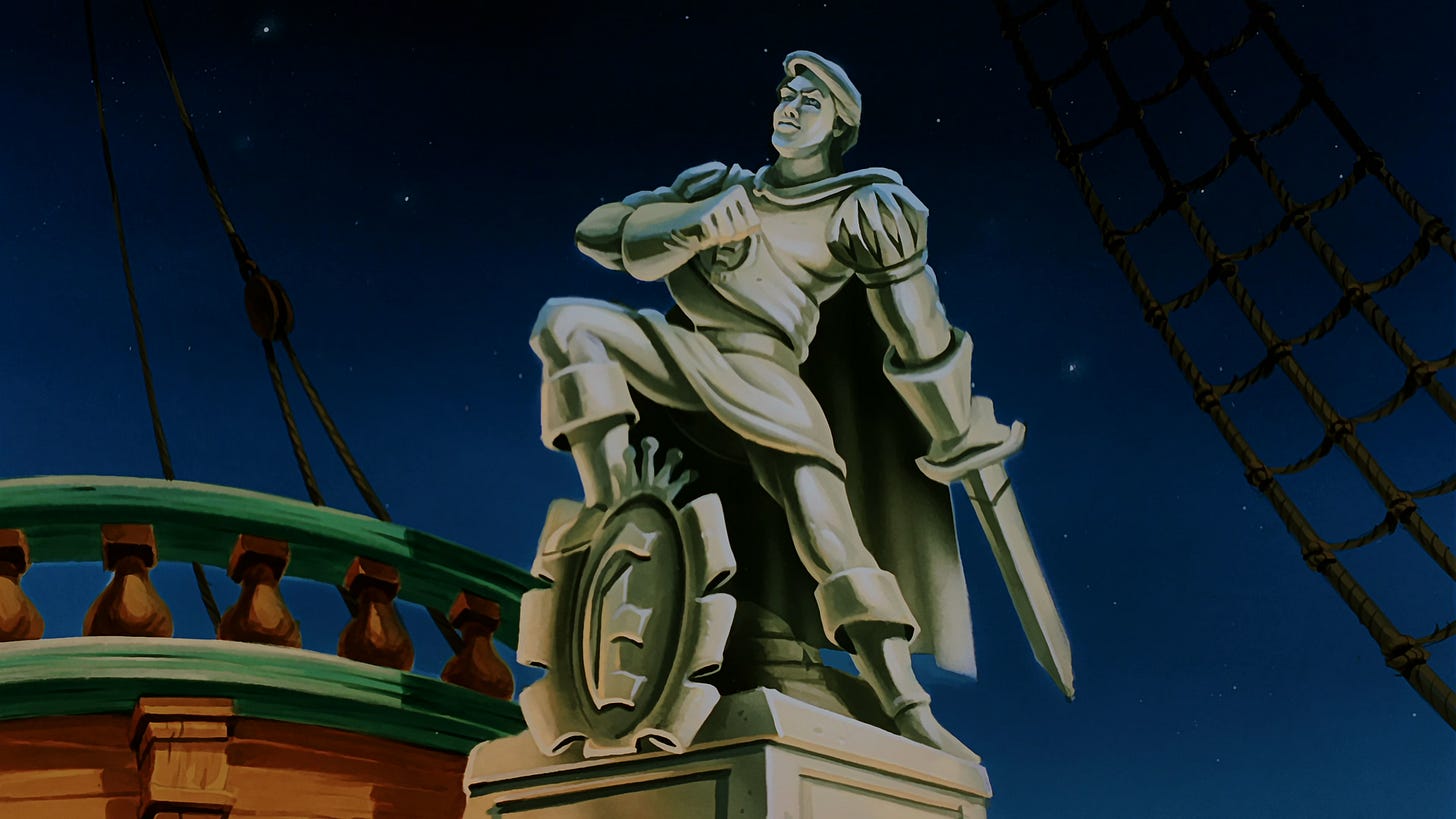

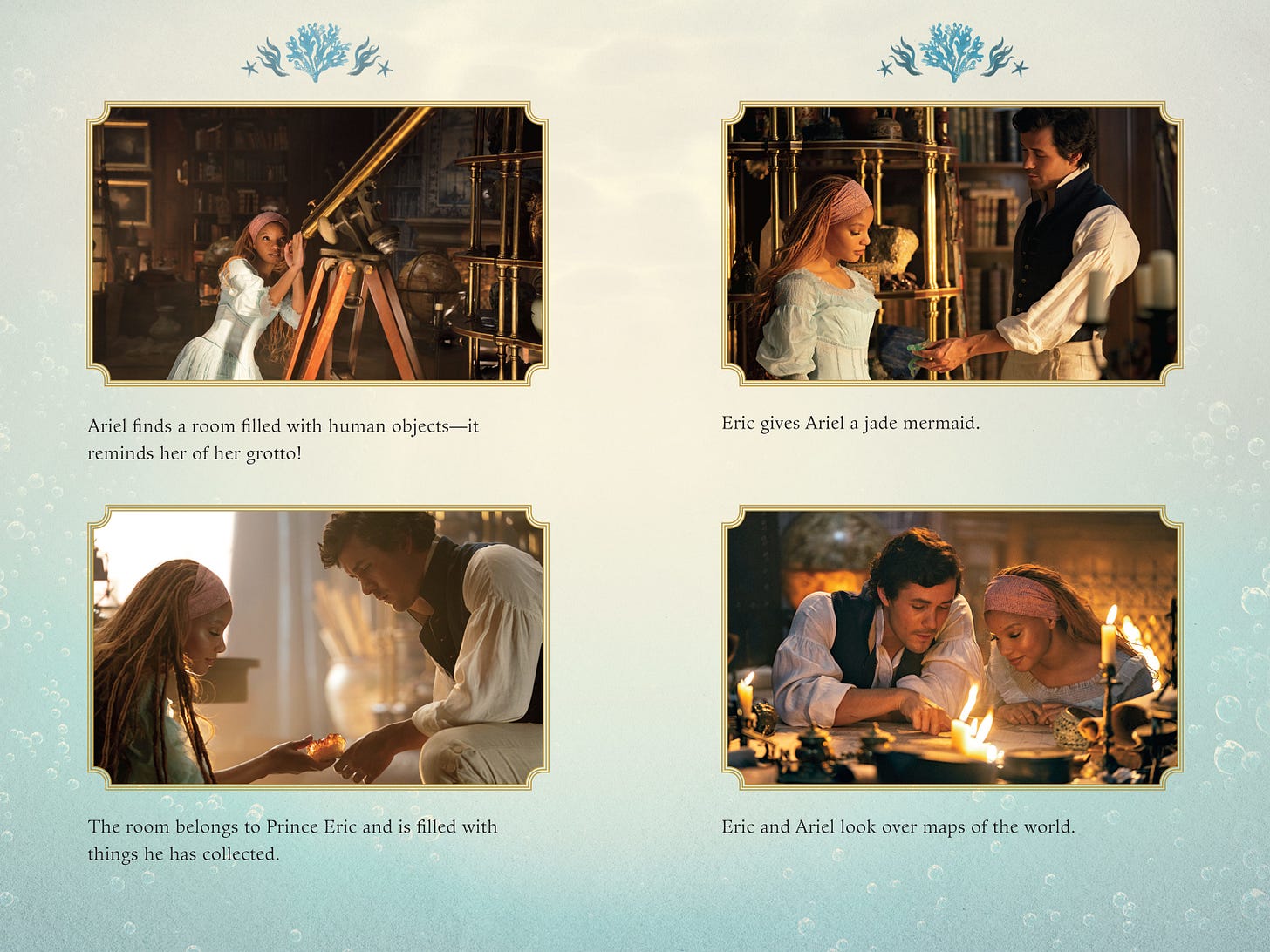

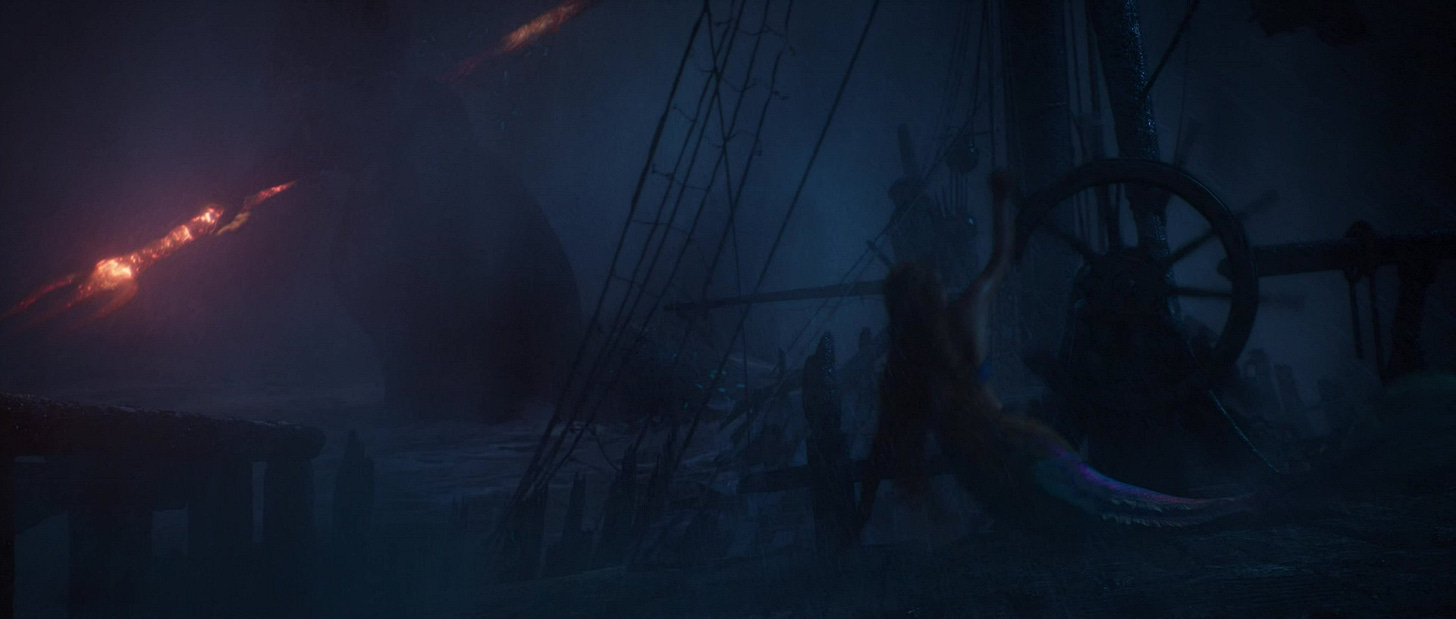

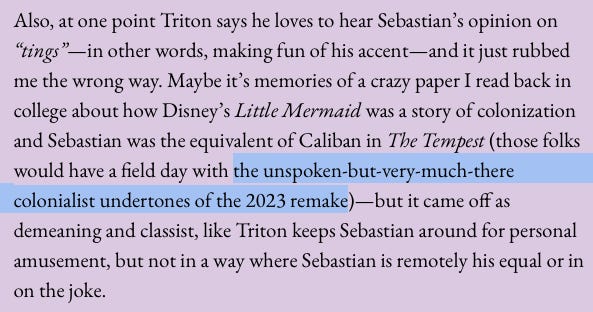

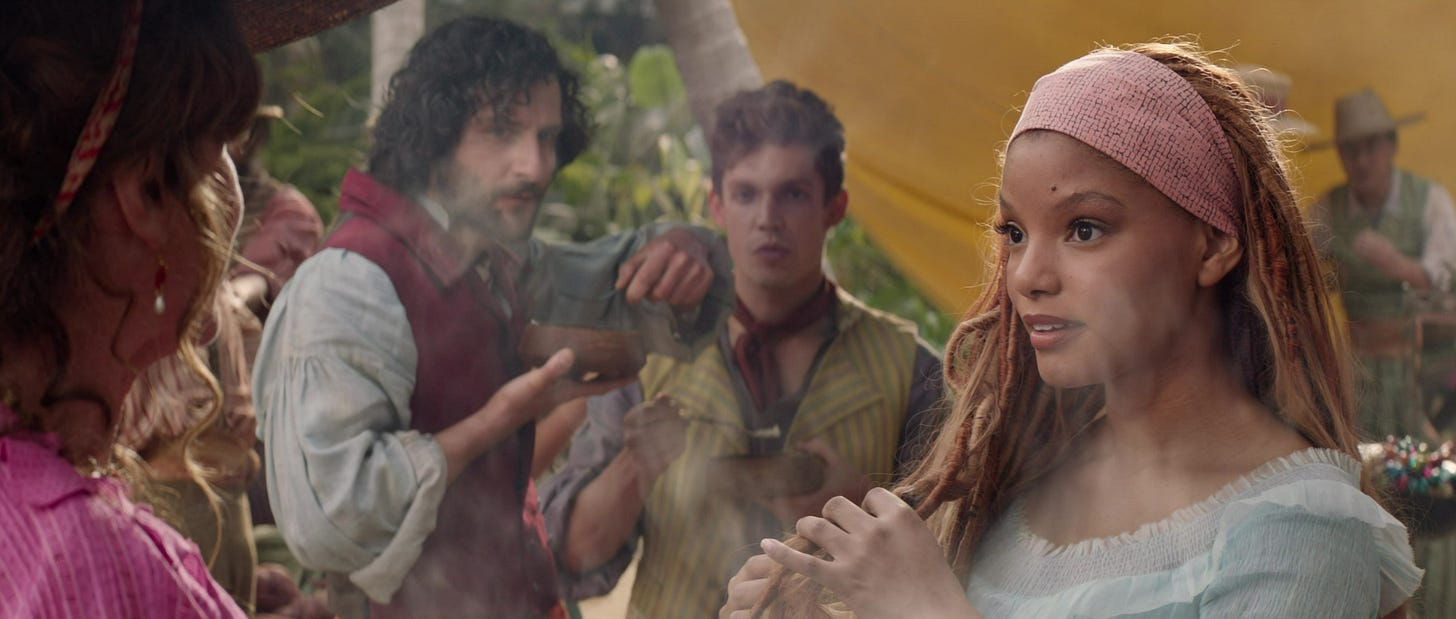
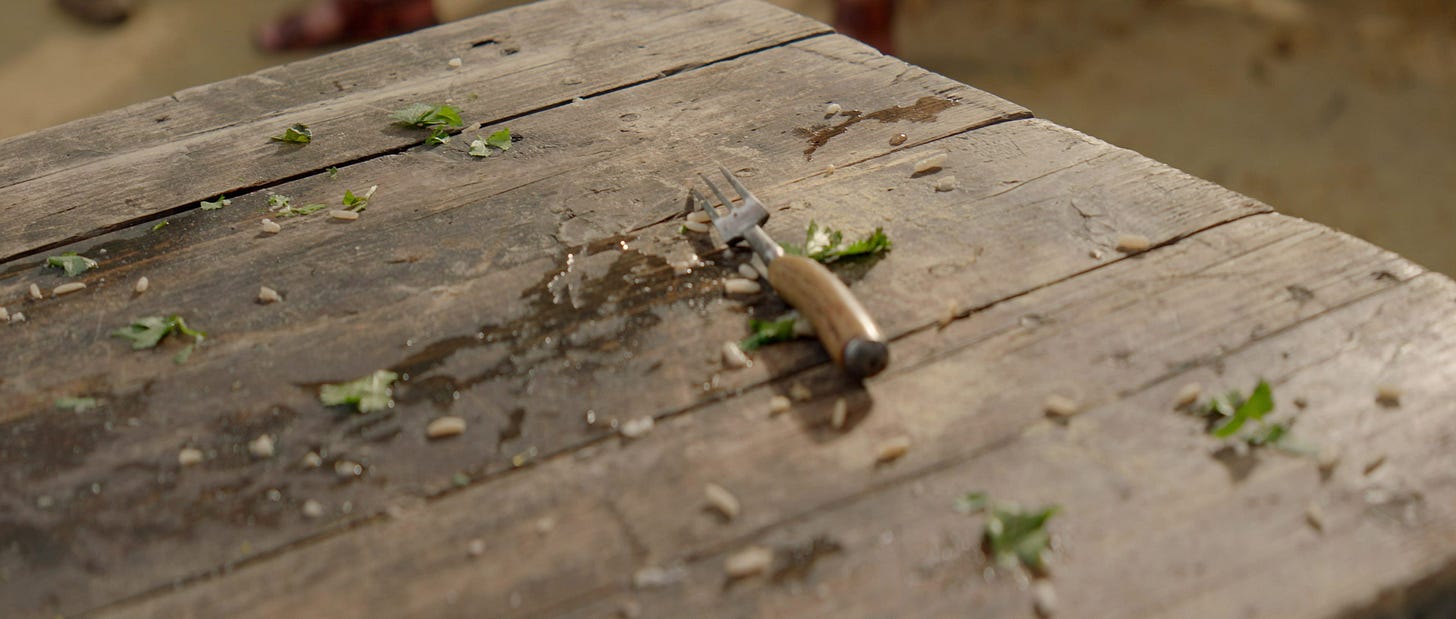
I loved this!! It expressed all of what I had already thought, but also gave me new ideas and reasons to shape my perspective.